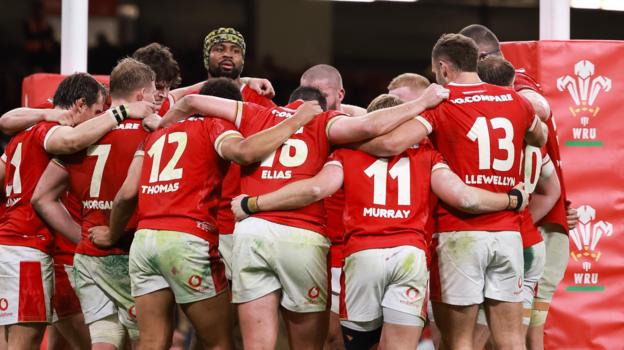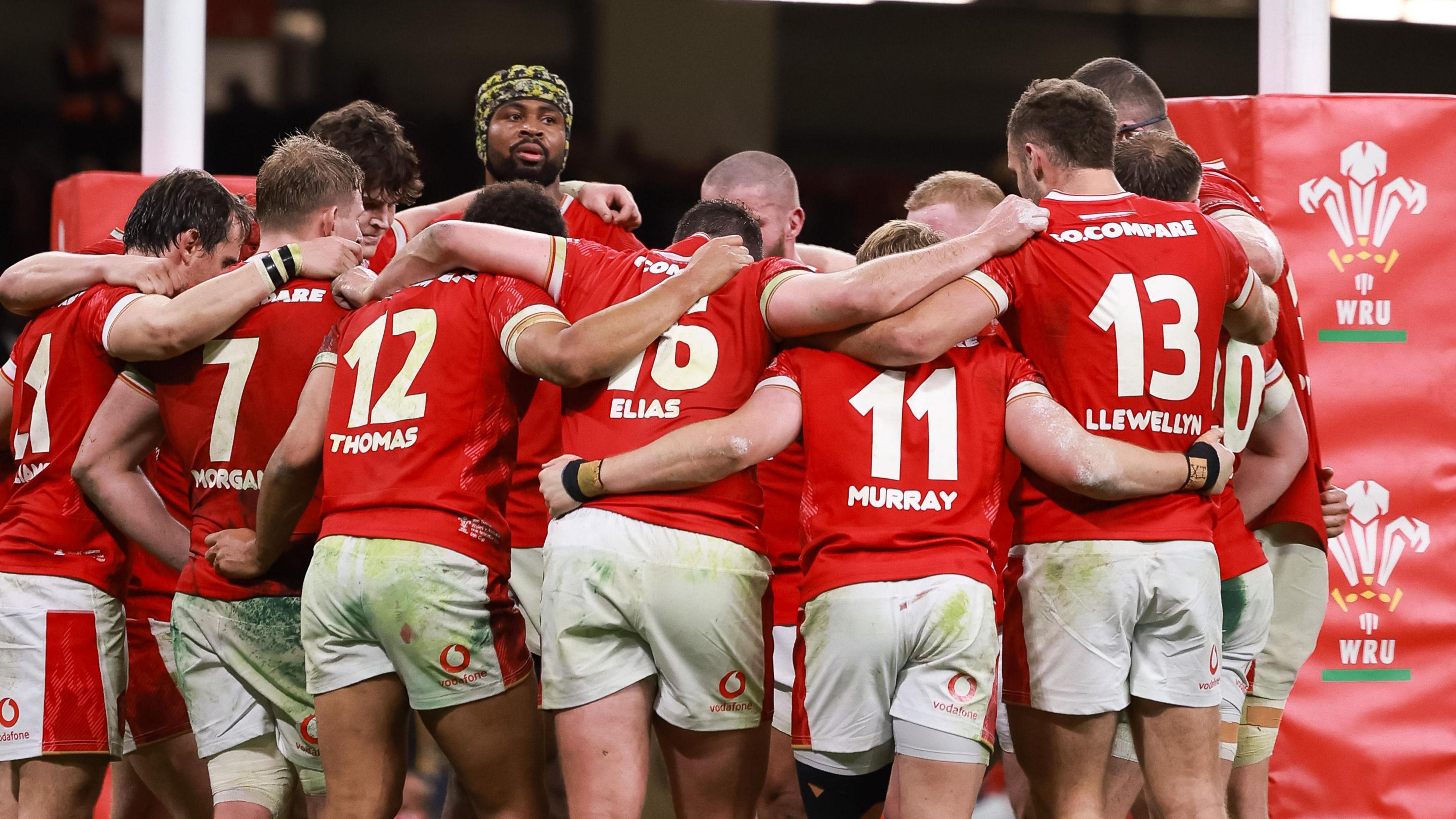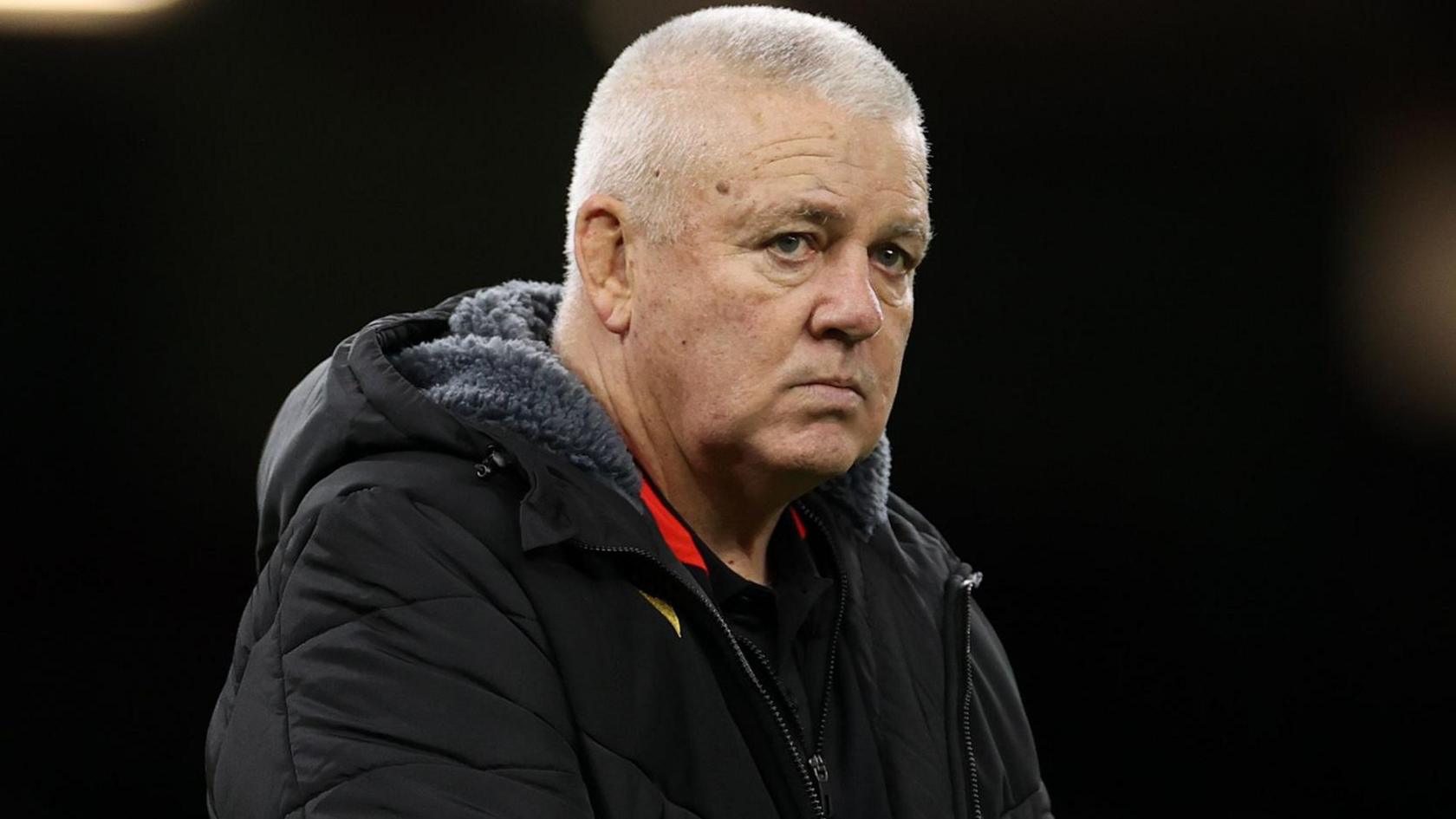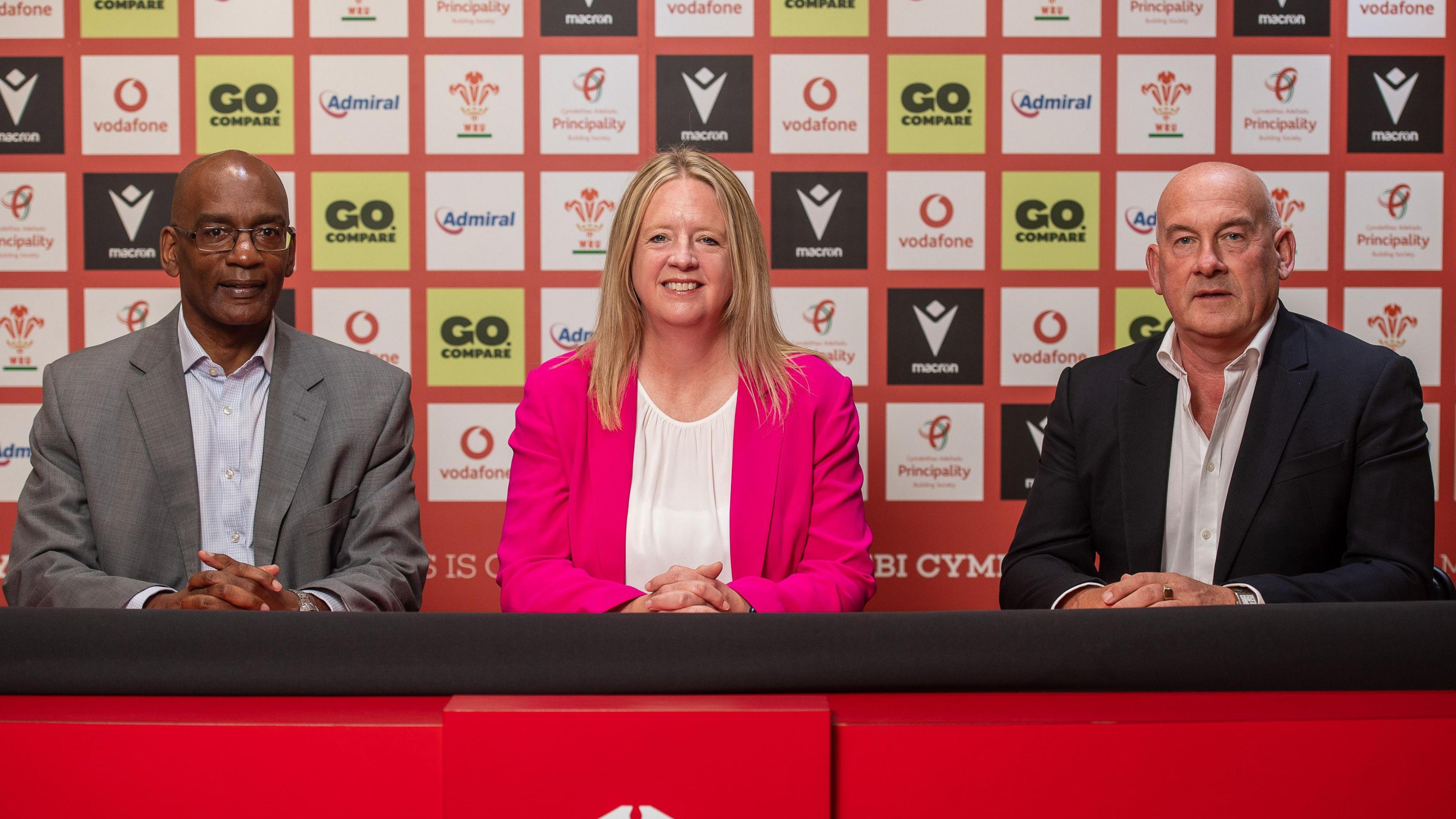Where do Welsh rugby and Gatland go from here?
Welsh rugby starts another week in crisis with the future of head coach Warren Gatland up for debate.


Has Welsh rugby finally hit rock bottom?
Head coach Warren Gatland has presided over statistically the worst Wales’ side in their 143-year international rugby history – slumping to a record 11th successive Test match loss with the 52-20 hammering against Australia.
Over the last year you could be forgiven for thinking things could not sink any lower. Then Australia recorded the most points the Wallabies have ever scored in Cardiff.
And the situation is in danger of unravelling even further next Saturday, when double world champions South Africa arrive at the Principality Stadium.
Over the bridge, critics of English rugby have tried to claim a crisis there, after Steve Borthwick’s side lost five consecutive games.
But three of those defeats have come against the All Blacks – with two games in New Zealand – and there was a last-gasp loss to Australia before England came up short against the Springboks.
The message, therefore, to English naysayers from the Welsh rugby faithful should be clear. When talking about a potential crisis, get in line. You don’t know what a crisis is.
So, what now for this Wales team, Welsh rugby and Gatland himself?
-
-
18 hours ago
-
Should Gatland stay or go?

Whether Gatland will be in charge for the opening Six Nations match against France in Paris on 31 January, or even for the Springboks next weekend, remains to be seen.
Even he admitted he was unsure and there was an air of resignation, mixed with occasional bouts of defiance, about Gatland in his interviews after the Australia defeat.
The New Zealander said he would accept his departure if it was for the benefit of Welsh rugby and he revealed he had spoken with Welsh Rugby Union (WRU) chair Richard Collier-Keywood and executive director of rugby Nigel Walker in the Principality Stadium changing rooms following this latest humiliation.
Gatland’s statistics for his second stint as Wales head coach are shocking. He has overseen six wins and 17 losses from 23 Tests since replacing Wayne Pivac in December 2022.
Four of those victories came in last year’s World Cup when Gatland led Wales to the quarter-finals before defeat against Argentina.
His side have not won a Test match since. They finished bottom of the Six Nations for the first time in 21 years, lost at home to Italy and Fiji and slipped to a World Rugby ranking low of 11th.
Gatland was always in danger of damaging his legacy when returning to a job for which he was generally revered after his first stint in charge, one that yielded Grand Slams and World Cup semi-finals.
Now pondering whether he should stay or go, Gatland posed the question who could come in and replace him, as he highlighted Welsh rugby’s flaws.
There is no evidence public opinion is completely against Gatland, with the counter-argument asking what more could he do with the youthful players at his disposal following the retirement of so many of Wales’ experienced “golden generation”.
This squad, led by an impressive captain in Dewi Lake, is full of young men proud to play for their country – but they are currently lightweight and novices on the international stage.
So what would replacing Gatland achieve and would a new face improve things?
Gatland’s critics will immediately put forward a long list of candidates, naming Michael Cheika, Shaun Edwards, Brad Mooar, Tony Brown, Franco Smith and Pat Lam as alternative options and there will be others.
Whether any of those individuals would improve the flagging fortunes of Welsh rugby is up for debate.
Can WRU afford to move Gatland on?
Gatland was effectively appointed by former WRU chief executive Steve Phillips, who resigned a month after attracting the Wales coach back for a second spell.
After starting with a tricky Six Nations in 2023, which featured only one win and the threat of strike action against England over contract issues, Gatland steadied the ship for the World Cup. With plenty of time to work with the squad, he oversaw an encouraging campaign including a 40-6 demolition of Australia in Lyon.
Both Gatland and the WRU could have cut their losses at the end of the global tournament, accepted he had achieved short-term stability and started the next four-year cycle with a new man at the helm.
Instead, Walker stated Gatland was the best coach in the world and the New Zealander carried on.
Exact details of Gatland’s contract – and whether there is a break clause – have never been officially revealed but the common assumption is the WRU would struggle to afford to get rid of the coach.
So moving Gatland on could come with financial ramifications for a governing body who have recently paid out £1.8m to former employees, including £480,000 to Phillips.
WRU failures

Gatland finds himself carrying the can but he is not alone. Wales are also currently without a women’s head coach after Ioan Cunningham departed following poor results and another recent off-the-field controversy involving players’ contracts.
Welsh rugby’s failings run deeper than this. The WRU is culpable and questions surround whether there is any credible succession planning.
There has been little evidence of this in recent years, with concerns the WRU hierarchy are sleepwalking into a continued downward spiral.
There was new leadership put in place designed to reform and rejuvenate Welsh rugby but they appear to be repeating the mistakes of previous regimes.
There is still no plan for Welsh rugby in place. Literally. Chief executive Abi Tierney has been in post officially since January and promised a new strategy in the first half of the year.
That was delayed with a bullet-point presentation in June outlining goals but it was essentially a wish list with little substance provided.
There is no evidence of an imminent publication of that strategy as the WRU continues to negotiate with the four Welsh professional sides.
-
-
4 November
-
As well as not yet being able to deliver what she promised, since Tierney has come in and Collier-Keywood was installed the results of the men’s and women’s national sides have deteriorated, the domestic regions continue to struggle in the grave financial climate and there is no evidence the WRU culture has improved.
Walker was present at Gatland’s post-match conference where he heard the coach field relentless questions about his future.
Walker, Tierney and Collier-Keywood should prepare themselves for that level of scrutiny when the trio will be quizzed next Sunday at the WRU annual general meeting (AGM) by club representatives.
The question is do they have the expertise to solve the Welsh rugby conundrum?
Apathy not anger
This video can not be played
To play this video you need to enable JavaScript in your browser.
If WRU bosses are in any doubt action is needed, they just need to look at the closing moments of Wales’ defeat against Australia.
As the final whistle was blown, there were some small sporadic boos around the stadium but that was a token gesture.
More concerning were the empty seats, with people streaming out of the ground in the last 10 minutes as they realised the inevitable result.
It was more apathy than anger from the supporters who Gatland accepted had been let down by Wales performance.
The Principality Stadium attendance was 56,188 compared with 67,491 against the same opposition two years ago, which turned out to be Pivac’s last game in charge.
So worrying times as people vote with their feet. The discrepancy in the crowds could be put down to the unhelpful late afternoon kick-off time on a Sunday but it is a vicious circle – Wales have been given that slot by broadcasters because of their current low status in the world game.
Missing out on ticket sales and prize money by finishing low down in the Six Nations will prove costly.
So when the question is posed can the WRU afford to make changes – the answer might be can they afford not to?
Welsh rugby’s uncertain and worrying future might just depend on what happens next.






